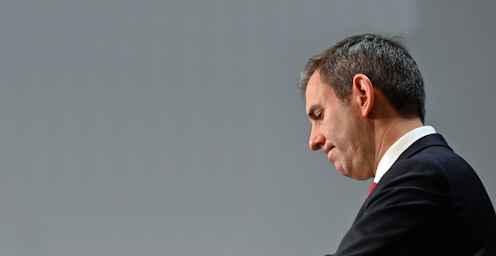Australia needs an honest conversation about tax and budgets – and Jim Chalmers is ready to talk
- Written by Peter Martin, Visiting Fellow, Crawford School of Public Policy, Australian National University

Jim Chalmers is a wily operator. Ahead of delivering his first budget next Tuesday[1], he has given himself room to do the things a treasurer needs to do.
For a while, his predecessor Josh Frydenberg denied himself that room. In his first budget as treasurer under Scott Morrison ahead of the 2019 election, Frydenberg promised to get the budget “back in the black[2]”.
That 2019 budget forecast increasing surpluses as far as the eye could see (which was ten years[3], the limit of the graphs presented in the budget papers). The Liberal Party began selling “back in the black” celebratory mugs at A$35 each.

















